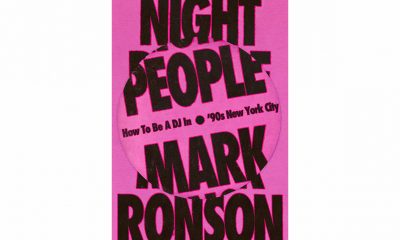Arts & Entertainment
Before Stonewall, newspapers complicit with police in gay bar raids
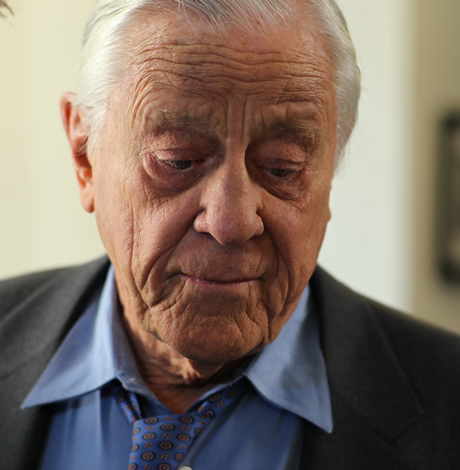
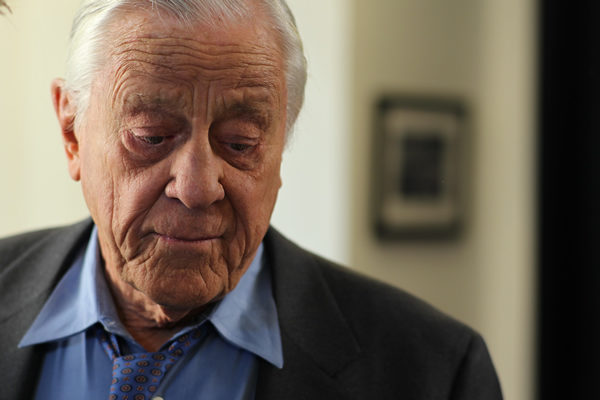
Fifty years ago, members of the LGBT community tired of continuous police raids on gay bars were driven to riot in the streets of New York City after the latest incursion at the Stonewall Inn on the evening of June 26, 1969.
But police raids on gay bars in the days before the Stonewall riots went hand-in-hand with the subsequent reports in newspapers the next day outing individuals caught in the raids, which would have potentially blacklisted them for the remainder of their lives.
In terms of Washington news coverage, the authority on newspapers outing gay men caught in police raids is Edward Alwood, a former CNN correspondent and now adjunct lecturer at the Philip Merrill College of Journalism at University of Maryland, College Park.
Alwood wrote about the practice in his 1996 book “Straight News: Gays, Lesbians, and the News Media,” and spoke about it in an interview with the Washington Blade.
“Washington was very different from New York,” Alwood said, “in that so much of the gay community here was connected with the federal government, and for that reason…gay men were much more closeted here and much less likely to protest as they did in New York.”
That perspective within D.C.’s gay community started to change, Alwood said, when gay rights pioneer Frank Kameny was outed, lost his job in the federal government as an astronomer and formed the Mattachine Society. Nonetheless, Alwood said during that time there would be newspaper articles reporting on gay raids that named individuals who were caught.
Reading from his book, Alwood said the D.C. press after World War II made vague references to homosexuals in describing street crimes, “particularly police campaigns to clean up public parks, including Lafayette Park across from the White House.” (Lafayette Park had been a place where gay men would meet to have sex discreetly.)
The Washington Post in the 1940s, Alwood said, described how officers shuttled groups of men from the park to the city jail throughout one night in July 1947 as 41 were arrested in the park.
The Washington Star reported that the metropolitan police staged a raid just to see who the men were. Similarly, the Post celebrated a crackdown a year later, when a headline read, “One-Man Vice Squad Arrests Eight More.”
“The article lavished praise on a handsome undercover officer who was deemed the the city’s most successful weapon in combating vice,” Alwood said. “Neither newspaper explained why the police felt compelled to target law-abiding citizens because they were considered unwelcome in public parks.”
Alwood quoted Benjamin Bradlee, the Post editor during its Pentagon Papers and Watergate coverage in the 1970s, as dismissive of the coverage in reflections of the time when he started at the newspaper covering vice on the crime beat.
“The police sent these guys into men’s rooms where they sort of lollygag around to see if anybody would make a pass at them,” Alwood quoted Bradlee as saying. “They would make sure the press heard about it. The Post never made a big deal out of it. We had little one paragraph that had that no news value, of course, but that’s what it was.”
For lesbians, Alwood said, the situation was different. For starters, sodomy was an offense perceived as something only men could commit, he said, so homosexual acts weren’t considered against the law. There were no lesbian bars, he said, so women met instead at women’s homes.
“They had these social clubs, so that’s part of the difference that happened, which is why so many more men wound up having their names and their ages and their street addresses listed in the newspapers,” Alwood said.
Nonetheless, Alwood said there was coverage of lesbians. One piece in the Washington Times-Herald, drew on the Red Scare of a Russian threat during the Cold War for a sensational article.
Under the headline, “Reds entice women here in sex orgies,” the article described an alleged plot by Russian agents to entice women employees of the State Department into homosexuality,” Alwood said.
“Russian agents were waging a systematic campaign to bring women employees of the State Department under their control by enticing them into a life of lesbianism,” Alwood said. “As many as 65 or 70 persons attended a single one of these lavish get-togethers, according to a congressional committee. Many were garbed in rich Oriental costumes to help them get into the spirit of things.”
Such coverage isn’t found today in Washington-area newspapers, which have been accepting of the D.C. LGBT community and seek to capitalize on LGBT events, such as Capital Pride. The Post, however, didn’t respond to the Washington Blade’s request for comment on past coverage outing gay men and whether any formal decision was made to change it.
Alwood said he’s unaware of any one instance that indicated “any flipping of the switch, so to speak,” but said the arrest of Walter Jenkins, a close aide to former President Lyndon Johnson, in 1964 on “moral charges” at the YMCA was a turning point.
“I think it was a wake-up call for journalists in this city because now it wasn’t just anonymous low-ranking people in men’s rooms and parks getting arrested, it was a high-level front page story of a presidential aide,” Alwood said. “And I think as a result of that, I’m just guessing, more journalists, such as those at the Post, realized they knew gay people and they didn’t fit the stereotype.”
Also at that time, Alwood said, more and more D.C. gay groups were protesting police actions, which led to a re-examination of the strict laws.
One period that marked a change, Alwood said, was when Albert Finney became managing editor of the Post. During his tenure, Alwood said Finney assigned a reporter to write an in-depth series about gay people in D.C.
“The series was stunning for its time,” Alwood said. “It was in-depth, bold, insightful. Though its premise rested on old stereotypes and clinical language, like homosexual, it pushed the boundaries of ignorance and denial to a new level of openness.”
Arts & Entertainment
2026 Most Eligible LGBTQ Singles nominations
We are looking for the most eligible LGBTQ singles in the Washington, D.C. region.

Are you or a friend looking to find a little love in 2026? We are looking for the most eligible LGBTQ singles in the Washington, D.C. region. Nominate you or your friends until January 23rd using the form below or by clicking HERE.
Our most eligible singles will be announced online in February. View our 2025 singles HERE.
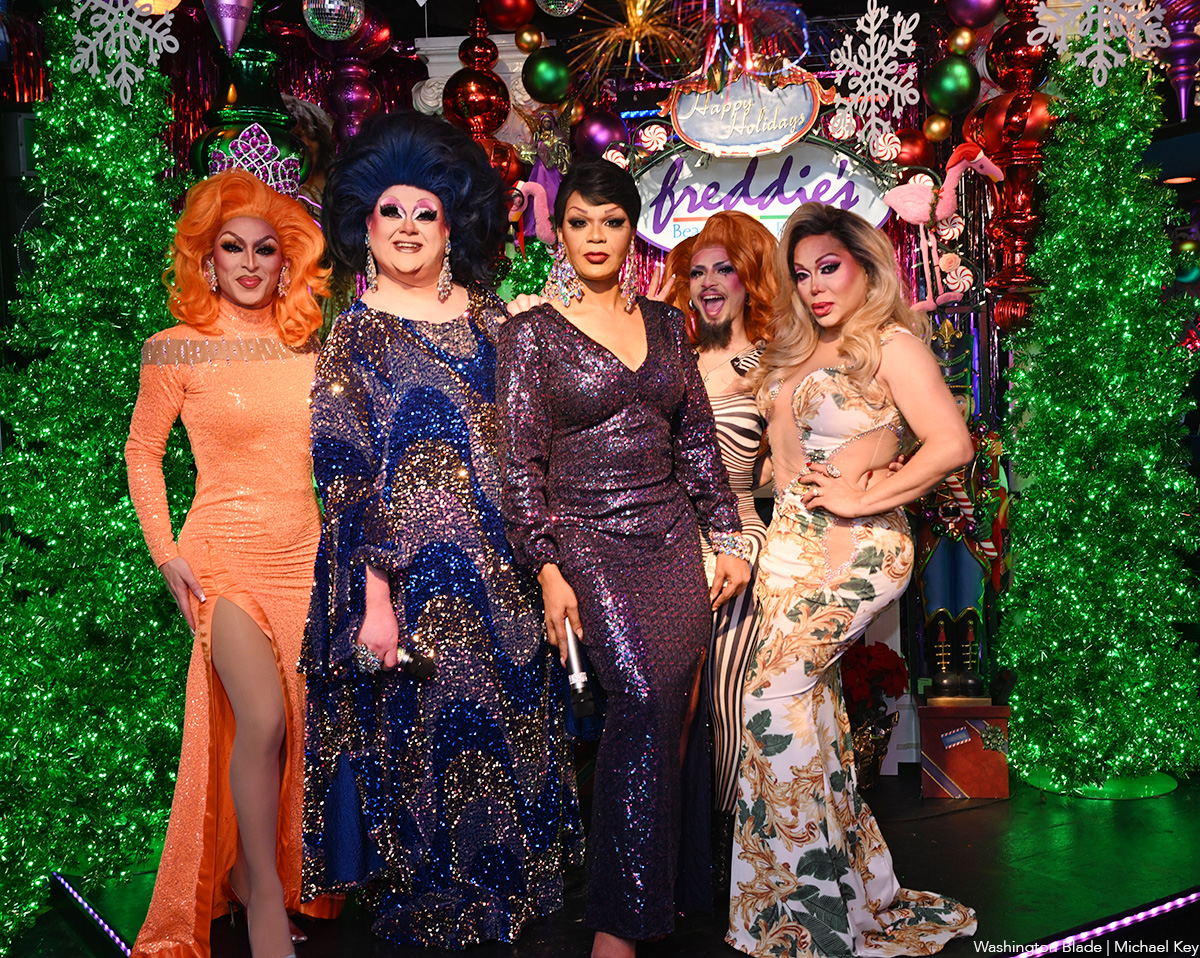
The Freddie’s Follies drag show was held at Freddie’s Beach Bar in Arlington, Va. on Saturday, Jan. 3. Performers included Monet Dupree, Michelle Livigne, Shirley Naytch, Gigi Paris Couture and Shenandoah.
(Washington Blade photos by Michael Key)

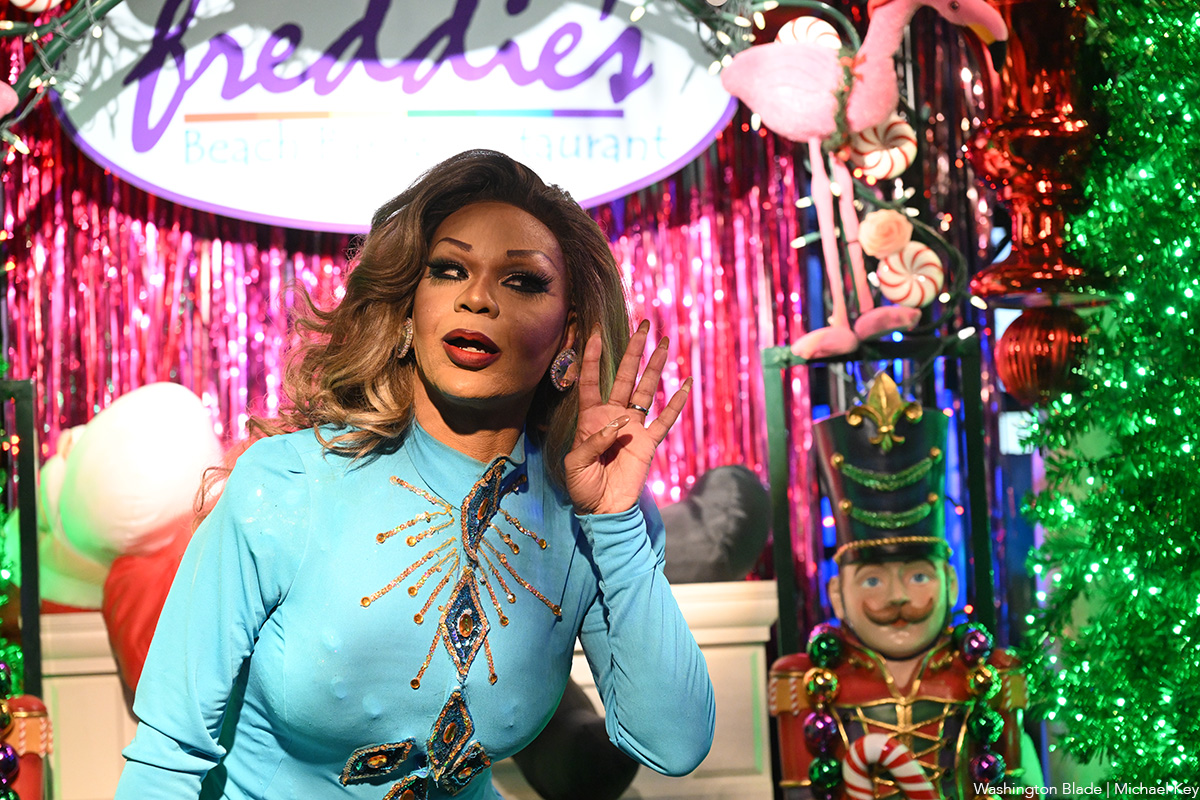





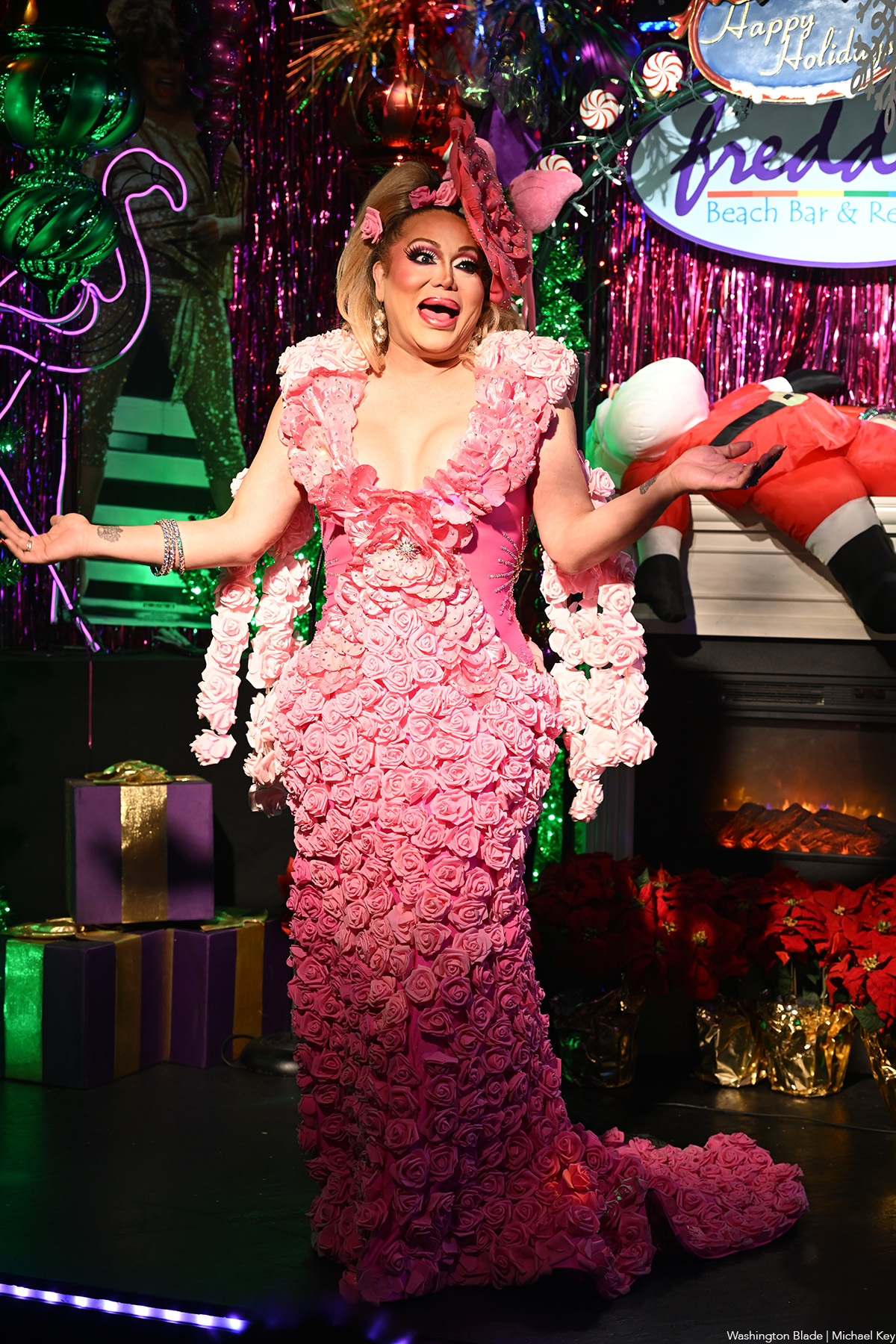
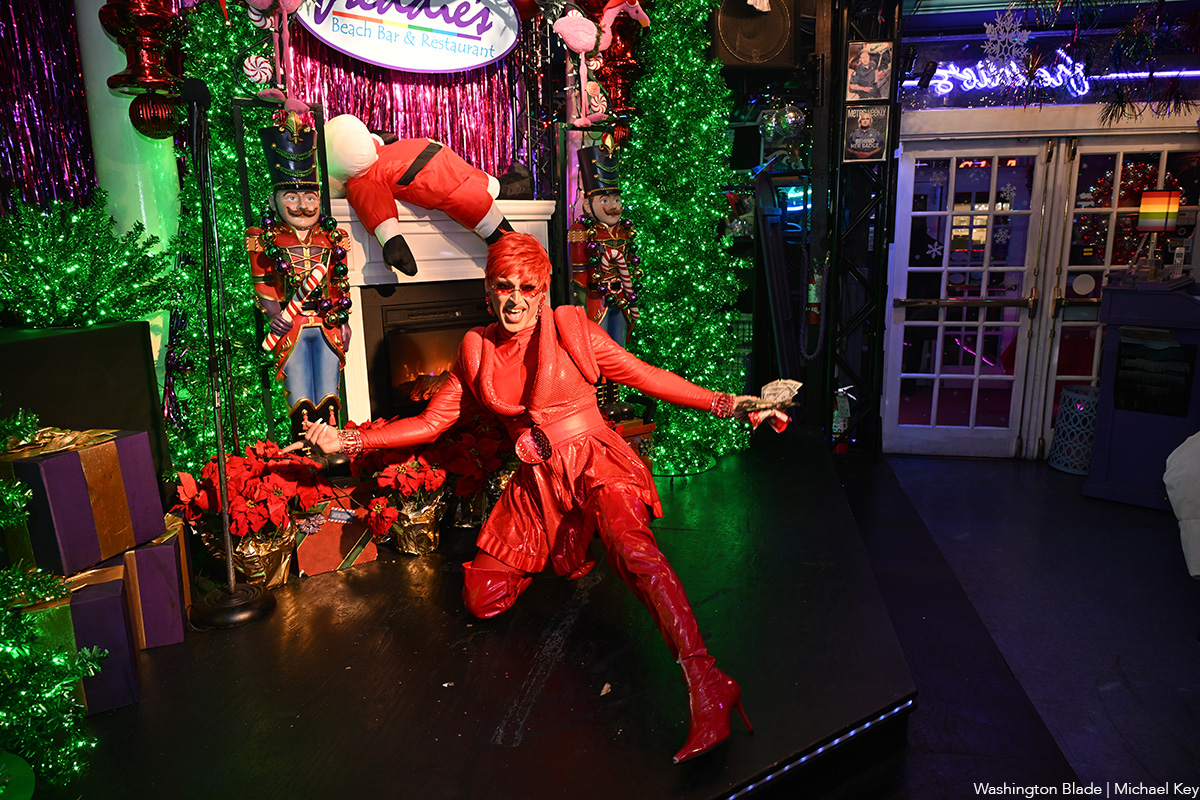
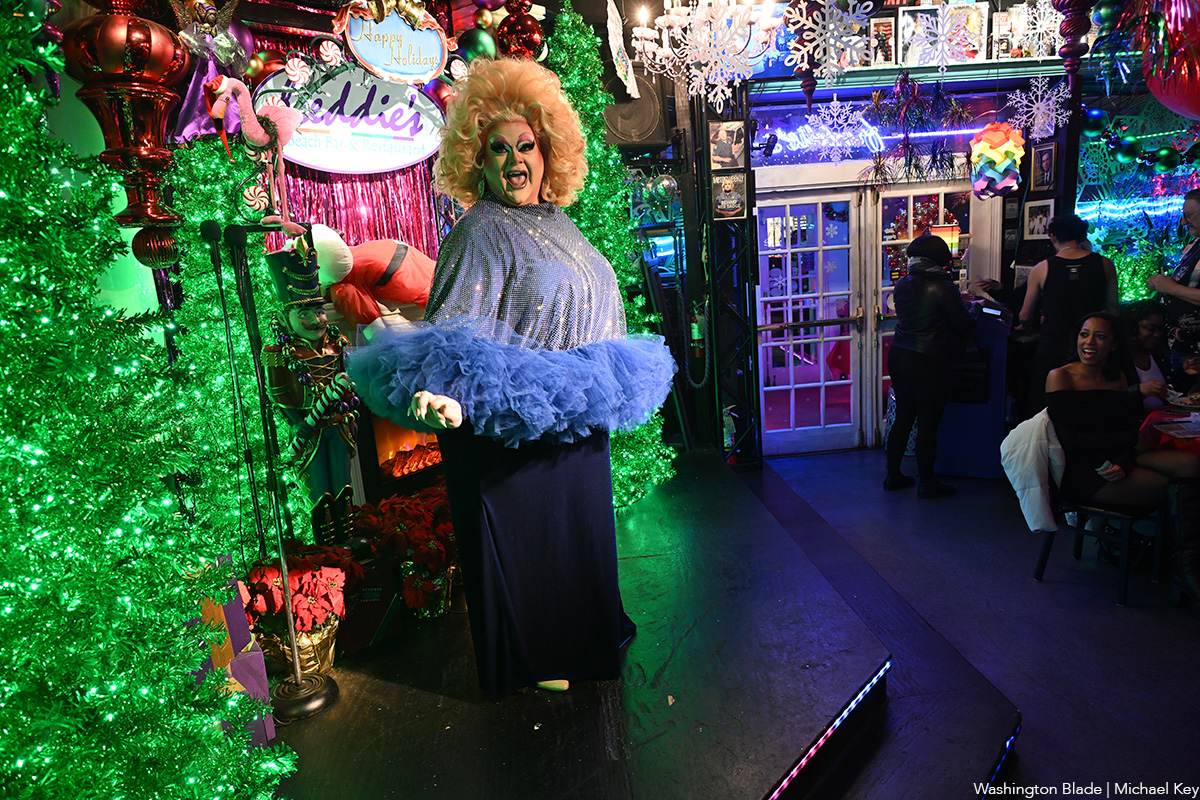
a&e features
Queer highlights of the 2026 Critics Choice Awards: Aunt Gladys, that ‘Heated Rivalry’ shoutout and more
Amy Madigan’s win in the supporting actress category puts her in serious contention to win the Oscar for ‘Weapons’
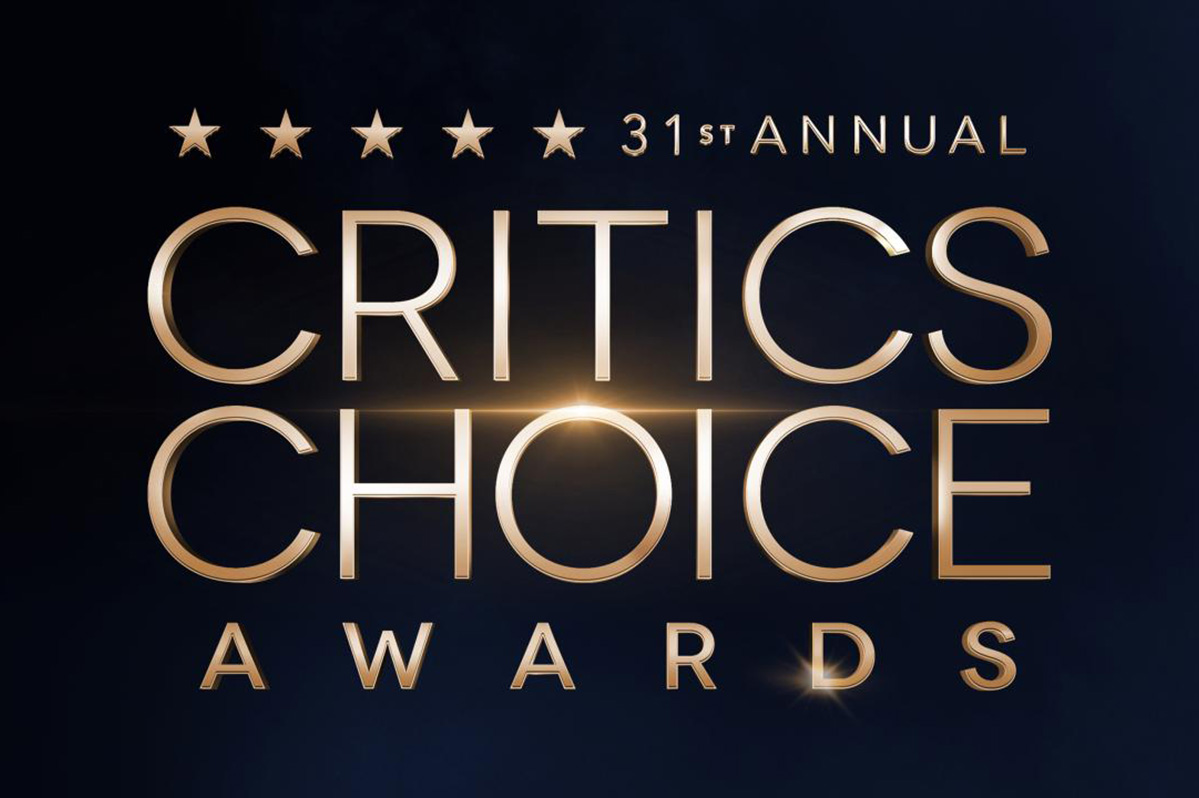
From Chelsea Handler shouting out Heated Rivalry in her opening monologue to Amy Madigan proving that horror performances can (and should) be taken seriously, the Critics Choice Awards provided plenty of iconic moments for queer movie fans to celebrate on the long road to Oscar night.
Handler kicked off the ceremony by recapping the biggest moments in pop culture last year, from Wicked: For Good to Sinners. She also made room to joke about the surprise hit TV sensation on everyone’s minds: “Shoutout to Heated Rivalry. Everyone loves it! Gay men love it, women love it, straight men who say they aren’t gay but work out at Equinox love it!”
The back-to-back wins for Jacob Elordi in Frankenstein and Amy Madigan in Weapons are notable, given the horror bias that awards voters typically have. Aunt Gladys instantly became a pop culture phenomenon within the LGBTQ+ community when Zach Cregger’s hit horror comedy released in August, but the thought that Madigan could be a serious awards contender for such a fun, out-there performance seemed improbable to most months ago. Now, considering the sheer amount of critics’ attention she’s received over the past month, there’s no denying she’s in the running for the Oscar.
“I really wasn’t expecting all of this because I thought people would like the movie, and I thought people would dig Gladys, but you love Gladys! I mean, it’s crazy,” Madigan said during her acceptance speech. “I get [sent] makeup tutorials and paintings. I even got one weird thing about how she’s a sex icon also, which I didn’t go too deep into that one.”
Over on the TV side, Rhea Seehorn won in the incredibly competitive best actress in a drama series category for her acclaimed performance as Carol in Pluribus, beating out the likes of Emmy winner Britt Lower for Severance, Carrie Coon for The White Lotus, and Bella Ramsey for The Last of Us. Pluribus, which was created by Breaking Bad’s showrunner Vince Gilligan, has been celebrated by audiences for its rich exploration of queer trauma and conversion therapy.
Jean Smart was Hack’s only win of the night, as Hannah Einbinder couldn’t repeat her Emmy victory in the supporting actress in a comedy series category against Janelle James, who nabbed a trophy for Abbott Elementary. Hacks lost the best comedy series award to The Studio, as it did at the Emmys in September. And in the limited series category, Erin Doherty repeated her Emmy success in supporting actress, joining in yet another Adolescence awards sweep.
As Oscar fans speculate on what these Critics Choice wins mean for future ceremonies, we have next week’s Golden Globes ceremony to look forward to on Jan. 11.





